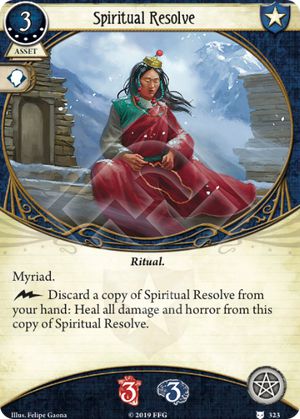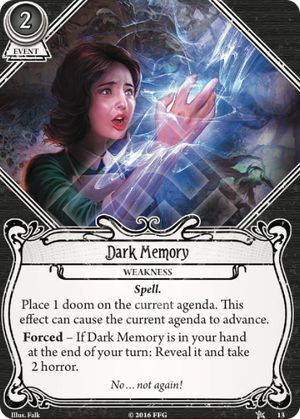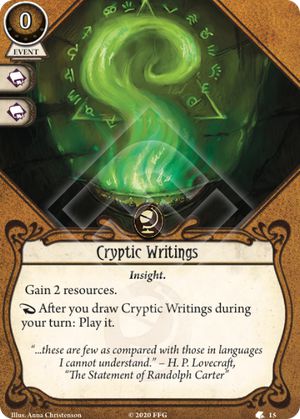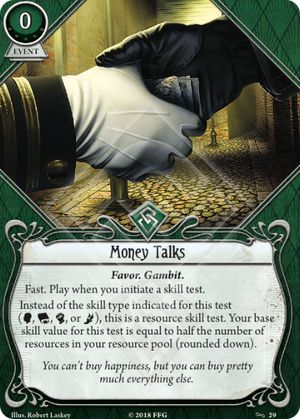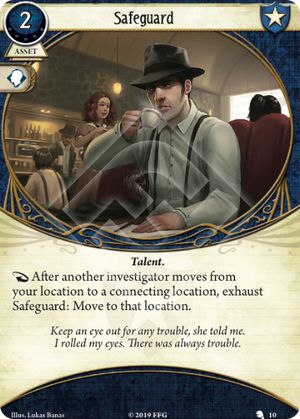
Should I run Safeguard, you ask? Well, would you run a 2-cost, slotless Leo De Luca?
OK, so maybe that comparison is a little bit flippant, but I do think this card is quite pushed and is probably the best level 0 Guardian card we've seen since the Core Set. This thing does a very respectable Pathfinder imitation, while being cheaper and not costing XP.
Note all the tricks you can do with this card and enemies. You can still activate Safeguard if you have an enemy on you. This allows you to drag enemies across locations without attacks of opportunity. This has cool applications for investigators like Roland and cards like Grete Wagner. Even outside of that, I've found that this comes in handy surprisingly often. For example, does your location have some nasty text that makes it unpleasant to stay and fight there? Just Safeguard your way to a nicer spot, action-free. With Safeguard II my Guardians have found themselves dragging enemies across the map in frankly ridiculous fashion.
Note that, unlike with Safeguard II, if another investigator moves into a location with an enemy, this version of Safeguard does not allow you to swoop in to preemptively engage that enemy (since you move "after" the other investigator). This is one of several reasons why I would recommend Safeguard II as a strong upgrade to an already great card.
Another benefit you'll notice from Safeguard, beyond the obvious one of saving you a ton of actions, is that you'll much more often be able to end your turn at the same location as the rest of the team. This is usually a really good thing. Investigators will more often be able to support each other with commits during the Mythos phase, for example.
Finally, Safeguard gets even better if other investigators are running the movement cards of their own faction. It's so strong with another investigator's Pathfinder or Shortcut. If you haven't tried a multiplayer group where one player takes two Pathfinders and everyone else takes two Safeguard IIs, well, you really should. It's pretty sweet.
